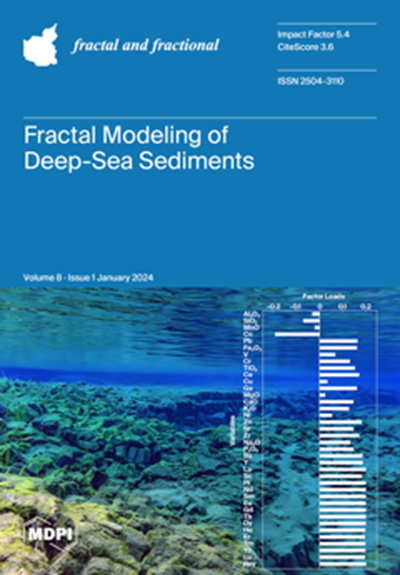The Effects of Thermal Memory on a Transient MHD Buoyancy-Driven Flow in a Rectangular Channel with Permeable Walls: A Free Convection Flow with a Fractional Thermal Flux
IF 3.6
2区 数学
Q1 MATHEMATICS, INTERDISCIPLINARY APPLICATIONS
引用次数: 0
Abstract
This study investigates the effects of magnetic induction, ion slip and Hall current on the flow of linear viscous fluids in a rectangular buoyant channel. In a hydro-magnetic flow scenario with permeable and conducting walls, one wall has a temperature variation that changes over time, while the other wall keeps a constant temperature; the research focuses on this situation. Asymmetric wall heating and suction/injection effects are also examined in the study. Using the Laplace transform, analytical solutions in the Laplace domain for temperature, velocity and induced magnetic field have been determined. The Stehfest approach has been used to find numerical solutions in the real domain by reversing Laplace transforms. The generalized thermal process makes use of an original fractional constitutive equation, in which the thermal flux is influenced by the history of temperature gradients, which has an impact on both the thermal process and the fluid’s hydro-magnetic behavior. The influence of thermal memory on heat transfer, fluid movement and magnetic induction was highlighted by comparing the solutions of the fractional model with the classic one based on Fourier’s law.热记忆对具有可渗透壁的矩形通道中瞬态MHD浮力驱动流的影响:具有分数热通量的自由对流
研究了磁感应、离子滑移和霍尔电流对矩形浮力通道中线性粘性流体流动的影响。在具有可渗透和导电壁的流体磁流场景中,一个壁的温度随时间变化,而另一个壁保持恒定温度;研究的重点是这种情况。研究中还考察了不对称壁面加热和抽吸/喷射效应。利用拉普拉斯变换,确定了温度、速度和感应磁场在拉普拉斯域中的解析解。Stehfest方法已被用于通过反向拉普拉斯变换在实域中找到数值解。广义热过程利用了一个原始的分数本构方程,其中热通量受到温度梯度历史的影响,这对热过程和流体的水磁行为都有影响。通过将分数模型的解与基于傅立叶定律的经典模型的解进行比较,强调了热记忆对传热、流体运动和磁感应的影响。
本文章由计算机程序翻译,如有差异,请以英文原文为准。
求助全文
约1分钟内获得全文
求助全文
来源期刊

Fractal and Fractional
MATHEMATICS, INTERDISCIPLINARY APPLICATIONS-
CiteScore
4.60
自引率
18.50%
发文量
632
审稿时长
11 weeks
期刊介绍:
Fractal and Fractional is an international, scientific, peer-reviewed, open access journal that focuses on the study of fractals and fractional calculus, as well as their applications across various fields of science and engineering. It is published monthly online by MDPI and offers a cutting-edge platform for research papers, reviews, and short notes in this specialized area. The journal, identified by ISSN 2504-3110, encourages scientists to submit their experimental and theoretical findings in great detail, with no limits on the length of manuscripts to ensure reproducibility. A key objective is to facilitate the publication of detailed research, including experimental procedures and calculations. "Fractal and Fractional" also stands out for its unique offerings: it warmly welcomes manuscripts related to research proposals and innovative ideas, and allows for the deposition of electronic files containing detailed calculations and experimental protocols as supplementary material.
 求助内容:
求助内容: 应助结果提醒方式:
应助结果提醒方式:


